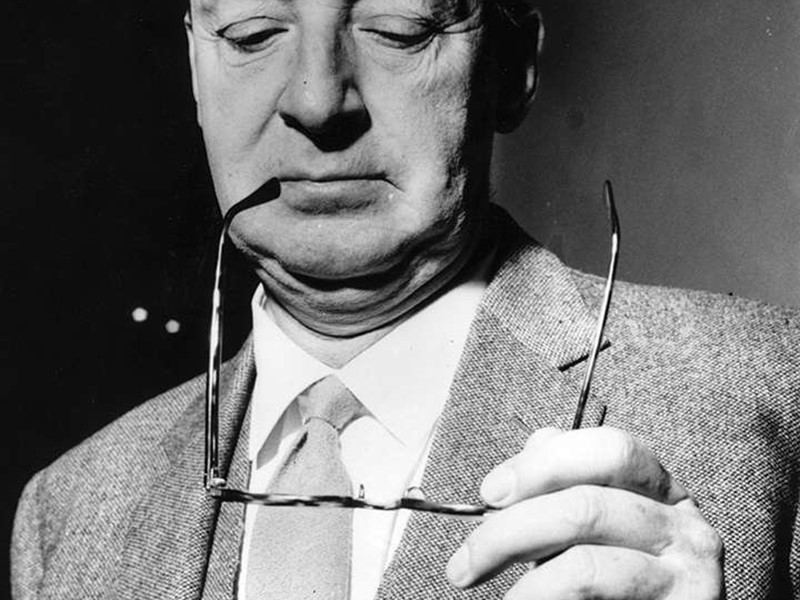Vladimir Nabokov

Russia[edit]
Nabokov was born on 22 April 1899 (10 April 1899 Old Style), in Saint Petersburg,[a] to a wealthy and prominent family of the Russian nobility, which traced its roots back to a fourteenth-century Tatar prince, Nabok Murza, who entered into the service of the Tsars, and from whom the family name is derived.[4][5]:16[6] His father was the liberal lawyer, statesman, and journalist Vladimir Dmitrievich Nabokov (1870–1922) and his mother was the heiress Yelena Ivanovna née Rukavishnikova, the granddaughter of a millionaire gold-mine owner. His father was a leader of the pre-Revolutionary liberal Constitutional Democratic Party and authored numerous books and articles about criminal law and politics.[7] His cousins included the composer Nicolas Nabokov. His paternal grandfather, Dmitry Nabokov (1827–1904), had been Russia's Justice Minister in the reign of Alexander II. His paternal grandmother was the Baltic German Baroness Maria von Korff (1842–1926). Through his father's German ancestry, he was also related to the music composer Carl Heinrich Graun (1704–1759).[8]
Vladimir was the family's eldest and favorite child, with four younger siblings: Sergey (1900–45); Olga (1903–78); Elena (1906–2000) and Kiril (1912–64). Sergey was killed in a Nazi concentration camp in 1945, after he spoke out publicly denouncing Hitler's regime. Olga is recalled by Ayn Rand (her close friend at Stoiunina Gymnasium) as having been a supporter of constitutional monarchy who had first awakened Rand's interest in politics.[9][10] The youngest daughter Elena, who would in later years become Vladimir's favourite sibling, published her correspondence with her brother in 1985 and would become an important living source for later biographers of Nabokov.
Nabokov spent his childhood and youth in Saint Petersburg and at the country estate Vyra near Siverskaya, to the south of the city. His childhood, which he had called "perfect" and "cosmopolitan", was remarkable in several ways. The family spoke Russian, English, and French in their household, and Nabokov was trilingual from an early age. He relates that the first English book his mother read to him was Misunderstood (1869) by Florence Montgomery. In fact, much to his patriotic father's disappointment, Nabokov could read and write in English before he could in Russian. In Speak, MemoryNabokov recalls numerous details of his privileged childhood, and his ability to recall in vivid detail memories of his past was a boon to him during his permanent exile, and it provided a theme that echoes from his first book Mary to later works such as Ada or Ardor: A Family Chronicle. While the family was nominally Orthodox, they felt no religious fervor, and Vladimir was not forced to attend church after he lost interest. In 1916, Nabokov inherited the estate Rozhdestveno, next to Vyra, from his uncle Vasily Ivanovich Rukavishnikov ("Uncle Ruka" in Speak, Memory), but lost it in the October Revolution one year later; this was the only house he ever owned.[citation needed]

Nabokov's adolescence was also the period in which his first serious literary endeavors were made. In 1916, Nabokov had his first collection of poetry published, Stikhi ("Poems"), a collection of 68 Russian poems. At the time, Nabokov was attending Tenishev school in Saint Petersburg, where his literature teacher Vladimir Vasilievich Gippius had been critical toward his literary accomplishments. Some time after the publication of Stikhi, Zinaida Gippius, renowned poet and first cousin of Vladimir Gippius, told Nabokov's father at a social event, "Please tell your son that he will never be a writer."[11]
Emigration[edit]
After the 1917 February Revolution, Nabokov's father became a secretary of the Russian Provisional Government and, after the October Revolution, the family was forced to flee the city for Crimea, not expecting to be away for very long. They lived at a friend's estate and in September 1918 moved to Livadiya, at the time part of the Ukrainian Republic; Nabokov's father became a minister of justice in the Crimean Regional Government.
After the withdrawal of the German Army in November 1918 and the defeat of the White Army (early 1919), the Nabokovs sought exile in western Europe. They settled briefly in England and Vladimir enrolled in Trinity College of the University of Cambridge, first studying zoology, then Slavic and Romance languages. His examination results on the first part of the Tripos, taken at the end of second year, were a starred first. He sat the second part of the exam in his fourth year, just after his father's death. Nabokov feared that he might fail the exam, but his script was marked second-class. His final examination result was second-class, and his BA conferred in 1922. Nabokov later drew on his Cambridge experiences to write several works, including the novels Glory and The Real Life of Sebastian Knight.
In 1920, Nabokov's family moved to Berlin, where his father set up the émigré newspaper Rul' ("Rudder"). Nabokov followed them to Berlin two years later, after completing his studies at Cambridge.